Vicki J Kondelik
Library Blogs
Showing 1141 - 1150 of 2007 items
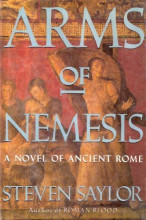
Arms of Nemesis is a mystery set in ancient Rome at the time of Spartacus' slave rebellion. Detective Gordianus the Finder investigates the murder of a cousin of Marcus Licinius Crassus, the richest man in Rome, who wants to lead the army against Spartacus. Two runaway slaves are blamed for the murder, and Crassus wants to slaughter the whole household of slaves in revenge. Gordianus is sure they're innocent, but he has to prove it to Crassus' satisfaction in three days' time.
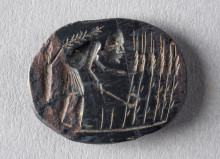
The Exhibit "The Art and Science of Healing: From Antiquity to the Renaissance" is now gone from the Kelsey Museum and the Audubon Room of the Hatcher Library, but we can still see it through the eyes of undergraduate Noah Waldman, who last semester wrote an exhibit critique for professor Aileen Das' class, "Ancient Medicine in Greece and Rome". Selected by Dr. Das, I am very pleased to post Noah's review in our Special Collections blog.
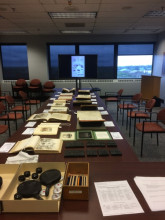
As part of last week's Enriching Scholarship events, I offered an introductory workshop on the subject of illustrations in early printed books. In brief, the participants of this session learned not only about how these extraordinary images were created but also about how to identify the details of their production by examining actual books. For each book the following question was raised: are these illustrations woodcuts, engravings, or lithographs? We all had great fun!
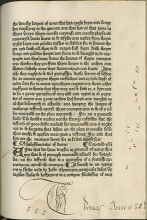
One of the most frequently asked questions about items in our collections is “How did we get this?” Our new exhibit, Storied Acquisitions: Highlights from the University of Michigan Library Collections, explores this question while celebrating the strength and breadth of the Library’s collections. From student work to spoils of war, the materials on display tell the stories of some of the students, alumni, faculty, and donors who have helped build our distinctive collections.

Although the University of Michigan was founded in 1817, it was not until the University re-located to Ann Arbor in the late 1830s that the University began working towards the establishment of a University Library. The first “official” purchase for the library was made in February 1838, just a few months before Asa Gray set out on his European book-buying voyage.

Maybe you’ve heard of or lived with a roommate who never washed the dishes, who talked loudly on the phone late into the night or who stiffed you on rent. Not fun. Bias in our research isn’t fun either. It distorts the nature of the data we collect, analyze and share.
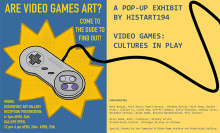
Late in the Winter term, several students from Kelli Wood's class (HISTART 194: Video Games - Cultures in Play) presented their final projects in the Duderstadt Gallery, in an exhibition entitled, "Are Video Games Art?" The exhibition included several meaningful presentations, and highlighted some of the game systems in the CVGA. We wanted to share some pictures from the event with you.
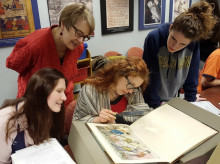
In January of 2016, Professor Susan Siegfried reached out to Pablo Alvarez and myself with a proposal: a class focused on 19th century color plate books, tightly focused on the use of original materials, with weekly meetings in Special Collections and out-of-class assignments, drawing heavily on the private collection of Dr. James Ravin, MD, of Toledo. Would we facilitate such an endeavor? Could we?

This delightful little book, which can be read in one sitting, is a diary kept by novelist and literary editor Diana Athill during a visit to Florence in 1947. She writes about the sights of Florence, the delicious food she ate, and the people she met there.

The first in a series of how-to guides helping you to preserve your personal files and archives!